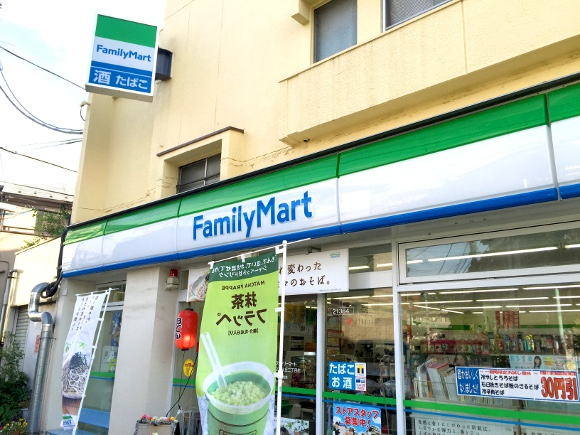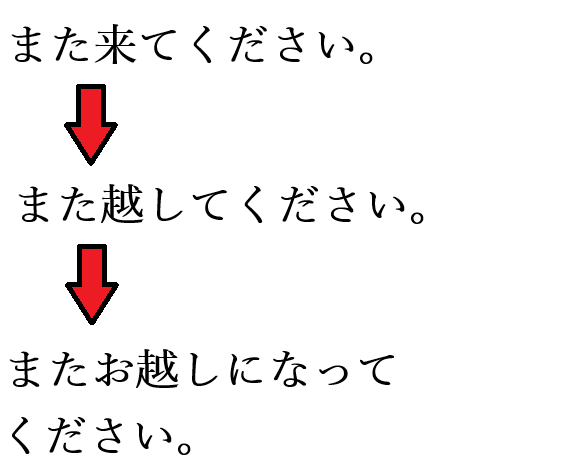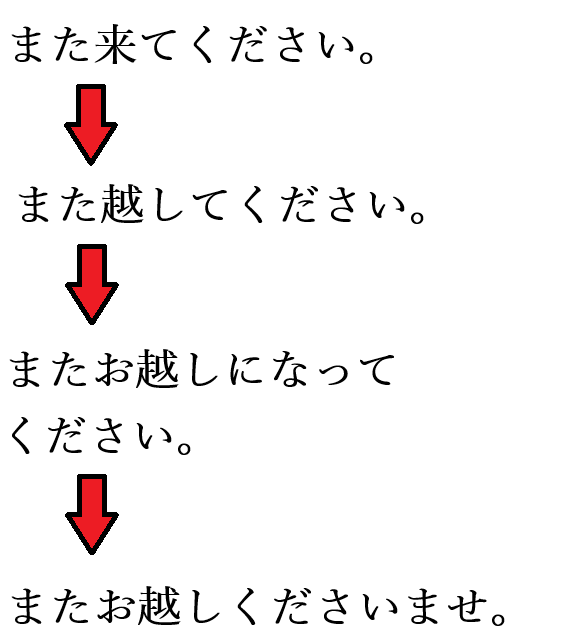
Family Mart relaxes customer service rules in recognition of clerks who aren’t native Japanese speakers, also allows dyed hair.
Convenience store clerk is not a particularly lucrative or glamorous job. It’s still a front-line customer service position, though, which means it’s a position that Japanese companies take very seriously.
As such, it’s a pretty big deal when convenience store chain Family Mart, a ubiquitous part of the Japanese landscape, enacts policy changes, as it did in March (just before the start of the Japanese fiscal year in April). One change: clerks are no longer required to tell customers “Thank you very much. Please come again,” as they complete their purchases, and instead merely need to say “Thank you very much.”
Why? Because Family Mart thinks the “Please come again” part is difficult for its increasing number of foreign employees to remember.
That might sound like an offensively dim view of the communication capabilities of Japan’s foreign residents, but the linguistics behind the previously required phrase are actually pretty complex. In Japanese, the standard way to say “Please come again” is “Mata kite kudasai,” but that’s nowhere near what Family Mart employees were required to say.
For starters, the basic word for “come,” kuru, is generally considered too casual for use in customer service. Instead, clerks were supposed to use the more polite verb kosu, which also means “come.”
▼ Kuru (left) and kosu (right)
Okay, so they had to change “Mata kite kudasai” to “Mata koshite kudasai” (koshite being the form of kosu used for requests/commands). Big deal right? But that’s not all. Japanese has a systematic form of grammar used for respectful speech, which requires adding an o- to the beginning of a verb, lopping off its last syllable, changing that removed syllable to its corresponding stem ending (for which there are multiple methods depending on the base form of the verb), then adding the preposition ni and the appropriate form of the verb naru (usually “become,” but meaning “do” for this purpose) onto the end. So koshite would be no good. It’d have to be changed to okoshi ni natte, which would now give us “Mata okoshi ni natte kudasai.”
▼ Changing mata kite kudasai to mata koshite kudasai, and then changing that to Mata okoshi ni natte kudasai.
Except even that’s not the correct phrase for interacting with customers. Kudasai may mean “please,” but for respectful speech, it should be changed to the more polished kudasaimase. And then there’s one more step to the process, dropping the ni natte, since okoshi can also function grammatically as a noun, finally giving us Mata okoshi kudasaimase, the phrase meaning “Please come again” that Family Mart clerks were previously required to say.
▼ The compete transformation from mata kite kudasai to mata okoshi kudasaimase.
So with a growing number of employees who aren’t native speakers of Japanese, Family Mart has decided it’s simpler to just have its clerks say just “Arigato gozaimasu” (“Thank you very much”) instead of “Arigato gozaimasu. Mata okoshi kudasaimase” (“Thank you very much, and please come again.”).
The chain’s policy was quietly changed in March, along with the abolishment of a rule that prohibited employees with naturally black hair from dying it. In consideration of youth trends, Family Mart now allows clerks to have dyed blond or brown hair, though wilder hues are still prohibited. The company has also not relaxed its rule prohibiting clerks from wearing earrings or necklaces while working, citing hygiene concerns (convenience store clerks do double as food prep workers, after all, cooking and serving up fried chicken, croquettes, and other items prepared in-store).
In the three months since the new rules went into effect, Family Mart says it has yet to receive a single complaint regarding the dropping of “Please come again” or brown/blond-haired clerks, suggesting that the relaxed policies are here to stay.
Source: IT Media via Hachima Kiko
Images ©SoraNews24
Follow Casey on Twitter, where he remembers having to use lots of keigo when he worked in the hotel industry.




 Message to foreigners at Japanese convenience store sparks controversy online
Message to foreigners at Japanese convenience store sparks controversy online Should saying thanks at a Japanese convenience store go without saying?
Should saying thanks at a Japanese convenience store go without saying? Foreign shop clerk and Japanese customer fail to communicate because of Japanese language quirk
Foreign shop clerk and Japanese customer fail to communicate because of Japanese language quirk Japanese man says “I’m a Vietnamese” while pointing knife at convenience store worker to rob her
Japanese man says “I’m a Vietnamese” while pointing knife at convenience store worker to rob her Japanese convenience store apologizes for putting Meatballs in meatball packages, issues recall
Japanese convenience store apologizes for putting Meatballs in meatball packages, issues recall Highest Starbucks in Japan set to open this spring in the Tokyo sky
Highest Starbucks in Japan set to open this spring in the Tokyo sky Survey finds that one in five high schoolers don’t know who music legend Masaharu Fukuyama is
Survey finds that one in five high schoolers don’t know who music legend Masaharu Fukuyama is Yakuzen ramen restaurant in Tokyo is very different to a yakuza ramen restaurant
Yakuzen ramen restaurant in Tokyo is very different to a yakuza ramen restaurant Adorable Totoro acorn key holders come with a special guest hidden inside[Photos]
Adorable Totoro acorn key holders come with a special guest hidden inside[Photos] We tried a Japanese egg steamer to achieve the perfect breakfast eggs without a stove
We tried a Japanese egg steamer to achieve the perfect breakfast eggs without a stove Foreign tourists in Japan will get free Shinkansen tickets to promote regional tourism
Foreign tourists in Japan will get free Shinkansen tickets to promote regional tourism 10 awesome ice creams available from convenience stores in Japan
10 awesome ice creams available from convenience stores in Japan A spotlight on Japanese singles figure skating: Jumping into the 2026 Olympics【Pt. II】
A spotlight on Japanese singles figure skating: Jumping into the 2026 Olympics【Pt. II】 The 5 best Japanese bento to buy at Kyoto Station
The 5 best Japanese bento to buy at Kyoto Station Kura Sushi adding premium tier pricing for better chance at capsule machine game
Kura Sushi adding premium tier pricing for better chance at capsule machine game The 10 most annoying things foreign tourists do on Japanese trains, according to locals
The 10 most annoying things foreign tourists do on Japanese trains, according to locals Starbucks Japan releases new sakura goods and drinkware for cherry blossom season 2026
Starbucks Japan releases new sakura goods and drinkware for cherry blossom season 2026 Naruto and Converse team up for new line of shinobi sneakers[Photos]
Naruto and Converse team up for new line of shinobi sneakers[Photos] Is Sapporio’s Snow Festival awesome enough to be worth visiting even if you hate the snow? [Pics]
Is Sapporio’s Snow Festival awesome enough to be worth visiting even if you hate the snow? [Pics] Japan has trams that say “sorry” while they ride around town…but why?
Japan has trams that say “sorry” while they ride around town…but why? Tokyo Skytree turns pink for the cherry blossom season
Tokyo Skytree turns pink for the cherry blossom season Sakura Totoro is here to get spring started early with adorable pouches and plushies
Sakura Totoro is here to get spring started early with adorable pouches and plushies Poop is in full bloom at the Unko Museums for cherry blossom season
Poop is in full bloom at the Unko Museums for cherry blossom season Shibuya Station’s Hachiko Gate and Yamanote Line stairway locations change next month
Shibuya Station’s Hachiko Gate and Yamanote Line stairway locations change next month Japan’s new “Cunte” contact lenses aren’t pronounced like you’re probably thinking they are
Japan’s new “Cunte” contact lenses aren’t pronounced like you’re probably thinking they are Japan’s newest Shinkansen has no seats…or passengers [Video]
Japan’s newest Shinkansen has no seats…or passengers [Video] Foreigners accounting for over 80 percent of off-course skiers needing rescue in Japan’s Hokkaido
Foreigners accounting for over 80 percent of off-course skiers needing rescue in Japan’s Hokkaido Super-salty pizza sends six kids to the hospital in Japan, linguistics blamed
Super-salty pizza sends six kids to the hospital in Japan, linguistics blamed Starbucks Japan unveils new sakura Frappuccino for cherry blossom season 2026
Starbucks Japan unveils new sakura Frappuccino for cherry blossom season 2026 Take a trip to Japan’s Dododo Land, the most irritating place on Earth
Take a trip to Japan’s Dododo Land, the most irritating place on Earth Is China’s don’t-go-to-Japan warning affecting the lines at a popular Tokyo gyukatsu restaurant?
Is China’s don’t-go-to-Japan warning affecting the lines at a popular Tokyo gyukatsu restaurant? Survey asks foreign tourists what bothered them in Japan, more than half gave same answer
Survey asks foreign tourists what bothered them in Japan, more than half gave same answer Japan’s human washing machines will go on sale to general public, demos to be held in Tokyo
Japan’s human washing machines will go on sale to general public, demos to be held in Tokyo Starbucks Japan releases new drinkware and goods for Valentine’s Day
Starbucks Japan releases new drinkware and goods for Valentine’s Day We deeply regret going into this tunnel on our walk in the mountains of Japan
We deeply regret going into this tunnel on our walk in the mountains of Japan Studio Ghibli releases Kodama forest spirits from Princess Mononoke to light up your home
Studio Ghibli releases Kodama forest spirits from Princess Mononoke to light up your home Major Japanese hotel chain says reservations via overseas booking sites may not be valid
Major Japanese hotel chain says reservations via overseas booking sites may not be valid Put sesame oil in your coffee? Japanese maker says it’s the best way to start your day【Taste test】
Put sesame oil in your coffee? Japanese maker says it’s the best way to start your day【Taste test】 No more using real katana for tourism activities, Japan’s National Police Agency says
No more using real katana for tourism activities, Japan’s National Police Agency says